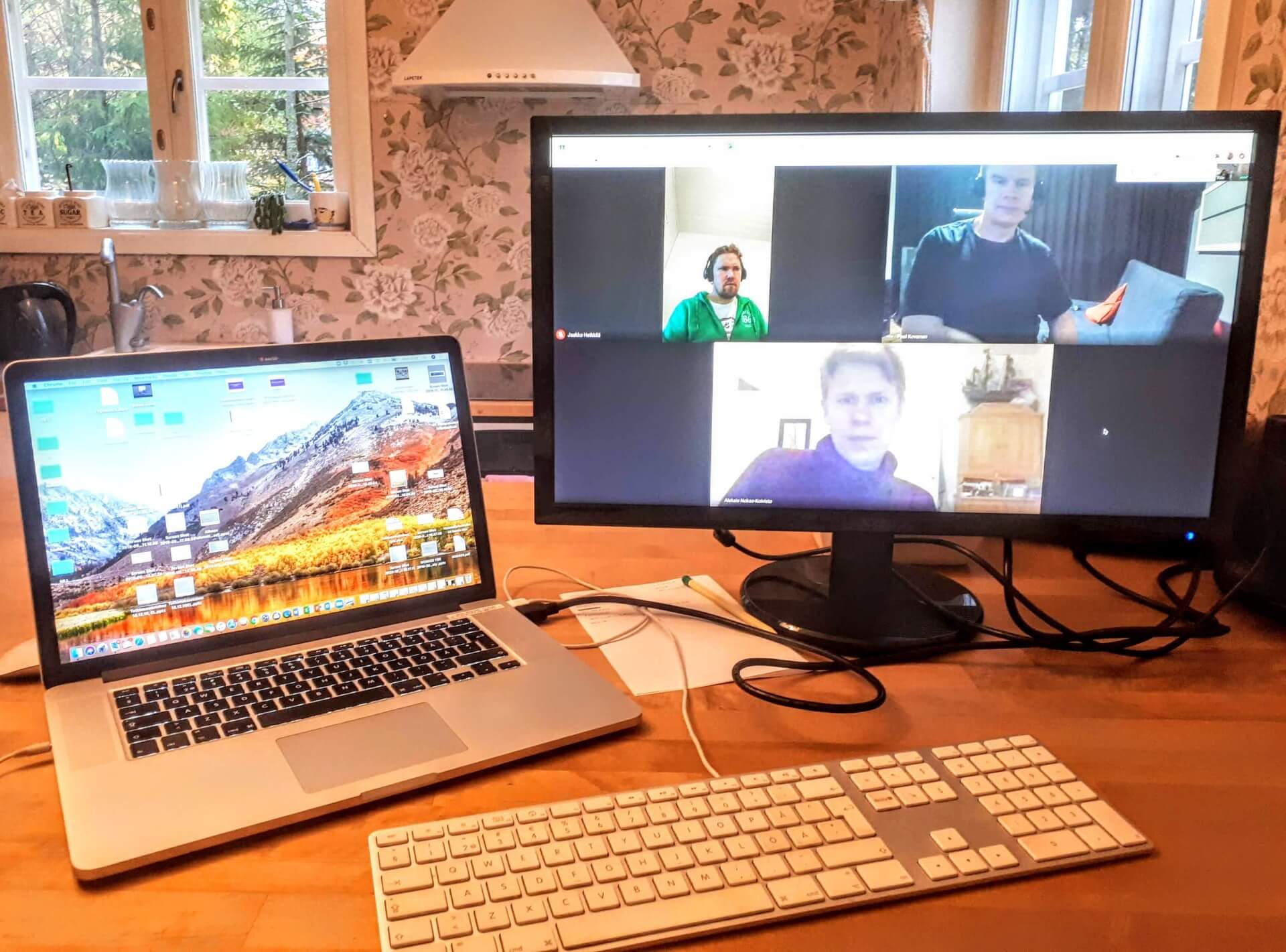How are peer support, psychological safety, well-being and teleworking linked? Underlying them all is the basic human need to be seen and heard, to be part of a team. Everyone can play their part in contributing to such an experience in their workplace.
"Man needs man to be man for man, to be man" are the wise, still living words of the late Tommy Tabermann. Man is hungry to be seen, heard and encountered. It is a basic innate need. Brain research has found that the experience of being shut out activates the same areas of the brain that are activated by the experience of physical pain. But why is it so difficult for us to meet our own need and the need of our loved ones to be met? The same question applies to families and work communities.
One third of those who have moved to teleworking feel that support from colleagues has decreased
Encounter and interaction are fundamentally about space. I see you, I look you in the eye, my body language points towards you, I smile. Working remotely and interacting from behind the screen challenges encounters. While teleworking has brought many positives to the workplace, a study by the Institute of Occupational Health found that one of the biggest challenges is the experience of a lack of support. Since the end of the spring recession, a third (34%) of those who have switched to teleworking felt that the support they received from colleagues and a quarter (24%) from their manager had decreased. Less support from the work community was also reflected in reduced experiences of community spirit and fair treatment. This is likely to undermine well-being at work.
The role of encounters and support in creating psychological safety
Psychological safety is the feeling of being able to express your thoughts and ideas without fear of it being turned against you. In a safe atmosphere, people dare to take risks in their interactions and talk about difficult issues. Psychological safety has been shown to increase organisational well-being and creativity. Being open, experimenting and failing is also a key to learning and creative success. Encounters and interactions are a prerequisite for the emergence of psychological safety in a group. Encounters can also take place online, even if it is more difficult to achieve a genuine encounter experience behind the screen than face-to-face.
Increasing the experience of support in the workplace
It's easy to agree that mutual support between colleagues is important. How can you support others? How can I increase the experience of being in the same boat? Everyone can contribute through their own behaviour to the kind of action they would like to see from others. Here are three everyday tips that everyone can apply on their own and see where it leads.
- Small and everyday chats are invaluable. It's really important to look at your colleague often enough, to be present for a moment, to listen to a story about the weekend, to laugh together. (This, like other tips, works in any relationship - it's worth trying at home too!)
- Grow the good. Take a moment to think about what kind of support you already feel you receive from your (remote) work community? How do you already see yourself meeting and supporting others? What can you do to increase the similar experience of others in your community?
- Share one of your failures. Many of us have challenges in being compassionate and gentle with our own failures. In the absence of face-to-face encounters, we miss out on balancing interactions with colleagues. We can then easily carry our failures more than usual alone, without even giving others a chance to support us. Sharing failures within a community allows us to support others remotely.
And lest (teleworking) life be too easy...
Because we are human, we think and act from our own point of view. This is sometimes misleading: the important issues of belonging and support are not necessarily the same for me as for my colleague. Therefore, good intentions alone are not always enough. We are not only what we think we are - we are also what we appear to others through our actions. So what on earth does this mean? To be able to act in goodwill with each other and to make positive interpretations of others, we need to know each other. When we understand our colleagues' reactions and motivations, we interpret their actions more positively. So speak up, people, speak up! So what should we talk about to move forward as a team and as colleagues? SmoothTeam is a good place to start.


